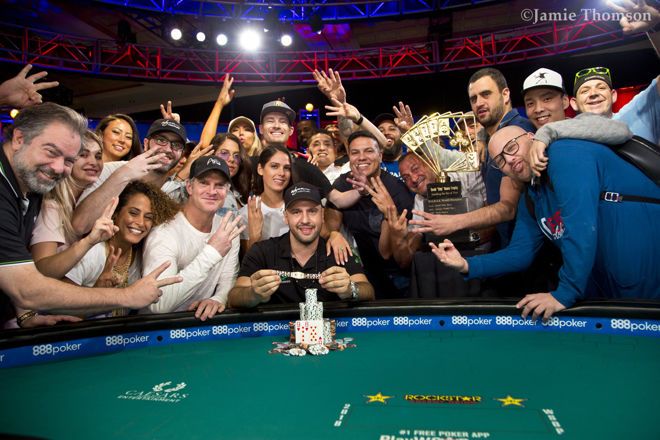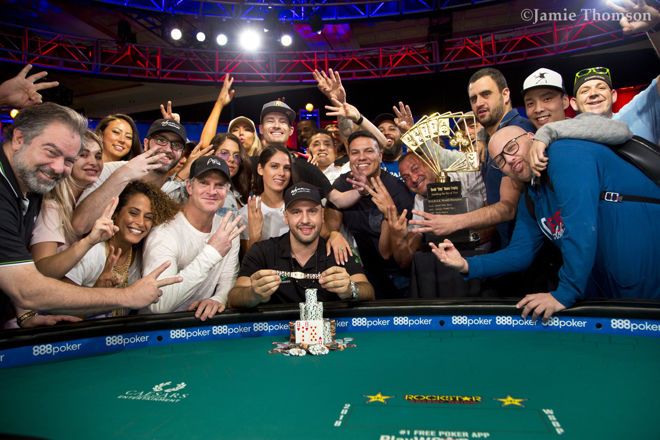Sports leagues and other key stakeholders are making one last push to cement their positions in the Pennsylvania sports betting industry.
The PA Gaming Control Board (PGCB) is fielding public comments on its proposed regulations, which it published last month. The response has been robust.
Professional sports leagues, NCAA athletic programs, casino groups, and operators all chimed in with feedback for the board.
The letters from leagues and teams are, by far, the most interesting of the bunch, so let’s start there.
You can see all the letters sent to the PGCB here.
NFL weighs in on PA sports betting
The NFL laid out its core principles on sports betting that they want PA to consider in a letter co-signed by the Philadelphia Eagles and Pittsburgh Steelers. NFL Commissioner Roger Goodell has already communicated those before.
Here they are in the letter, however:
- A legal, regulated sports betting environment with substantial consumer protections;
- Protection of our content and intellectual property, including from those who attempt to steal or misuse it;
- Fan access to official, reliable league data; and
- Adequate resources, monitoring and enforcement tools necessary for law enforcement to protect our fans by eliminating the illegal sports betting marketplace and penalizing bad actors here at home and abroad.
The NFL then goes into specific changes the league would like to see, either from lawmakers or regulators. This appears to be the NFL’s first time wading into state-level lobbying for regulation.
Here are some of the highlights (NFL’s words in italics):
The tax rate and licensing fee are too high
Interestingly, the NFL notes that the state’s tax and licensing structure provide to high a bar for operators, making it difficult for them to compete with the illegal market for sports wagering:
Finally, we would like to share our concerns that the statutory operator licensing fees of $10 million and the 34 percent tax rate on gaming revenue may render legal market participants unable to effectively compete with those in the illegal market.
There is no call for an integrity fee or royalty to be paid to the NFL, something NBA and MLB have asked for in other states.
Limiting who can bet
We would accordingly encourage the Board to issue regulations prohibiting operators from accepting sports wagers from an athlete, coach, referee, or employee of an amateur or professional sports organization (including unions associated with such organizations), or any family members thereof acting on their behalf, on such organization’s sport. As part of this effort, we believe it is imperative that Commonwealth sports book operators enact robust customer verification procedures, requiring multiple levels of identification.
We would further encourage prohibiting wagers from individuals convicted of a state or federal crime relating to sports wagering, and limiting the acceptance of wagers to natural persons (as opposed to corporations or other entities, which could more easily obscure the identities of those involved).
In-play betting
The NFL is not a fan of in-game prop betting, it appears, because of integrity concerns.
The examples the NFL gives of bets that are bad for integrity are “the number of passing yards by a quarterback in a football game or the number of points or rebounds by a team during a quarter of a basketball game, to the number of “throw-ins” in a soccer match or even how many flags a referee might throw in a contest.”
MLB has lobbied for having the power to limit such wagers, and the NFL appears to want this same power.
Official data
Again, the NFL seems to be in agreement with its fellow leagues on the need to use “official data” to resolve sports bets:
Therefore, an essential component of consumer protection is a requirement that the information used to settle these wagers is correct and timely, something that can only come from official data provided by the sports leagues themselves. Sports leagues already produce this data for broadcast and statistical purposes. We believe our data should be the standard in a legal, regulated market.
Use of official league data also protects consumers from fake matches or “ghost games” created by criminals or unscrupulous operators.
Information sharing
Another common league talking point has been the idea of codifying how operators, leagues and law enforcement work together. The NFL agrees:
“To promote integrity in the new sports betting marketplace, we encourage the Board to consider regulations creating a duty for regulators and operators to provide amateur and professional sports organizations with real-time information relating” to sports betting.
NBA, MLB, PGA Tour letter
The three primary petitioners are asking for many of the same things they’ve been asking for since they began lobbying lawmakers around the first of the year. This group (and specifically NBA/MLB) has led the push for regulation at the state level for many months.
Leagues focusing on data over royalty fees
Here’s their updated list of wants in PA, quoted directly:
- Transparency: Enhanced communication and information sharing among sports wagering operators, the Gaming Control Board, and sports leagues.
- Accuracy: Strict regulation of data and statistics used to offer and settle sports bets.
- Safety: “Guardrail” protections that restrict prohibited persons from placing bets and allow leagues to identify and restrict certain kinds of sports bets that carry a greater risk to game integrity.
As to transparency, the leagues ask for a “flexible and robust system of data collection and sharing” in order to help root out potential impropriety. This would include sharing of real-time betting information with the leagues and three years of retention.
Leagues want greater input on in-game wagering
As for accuracy, the leagues suggest a partial compromise in which bets are broken down into two tiers. Official league data would be required for Tier Two bets, which are essentially in-game and proposition bets. Traditional Tier One bets, however, could be settled by any source other than so-called courtsiders.
Regarding safety, the leagues want the power to restrict the types of bets “that pose an unduly high integrity risk.” They’ve long maintained that certain wagers, “such as whether the first pitch is a fastball or a curveball,” can be more susceptible to manipulation.
“We believe these proposed regulations will lead to a safer and more sustainable environment for sports betting in Pennsylvania, while protecting the integrity of the underlying sporting events.”
One thing conspicuously absent from their request? The integrity fees that allowing them to collect sports betting revenue. That ship has sailed in Pennsylvania.
Or has it?
Pittsburgh Pirates chime in
As it turns out, the integrity fee makes an appearance in the public comments after all.
Pirates angling for integrity fee compensation
MLB has a total of ten teams in the Keystone State: There two major league teams plus eight more across its minor leagues. The Pittsburgh Pirates were the only one to offer public comment, and they’ve grabbed the reins of integrity from the league.
Check out this paragraph:
We are very concerned the current iteration of the Regulation does not call for any portion of sports wagering revenue to be set aside to ensure the integrity of the sports on which wagering is based. We believe an “integrity fee” is essential to fund programs educating our players, fans, and the general public regarding potential involvement of unsavory characters and organizations that may attempt to alter the outcome of these sporting events. The proceeds of this integrity fee would also allow teams such as the Pirates and leagues such as MLB to monitor betting lines and betting information internally.
Pirates want some cash for PNC Park to boot
But wait, there’s more. In addition to the integrity fees paid to MLB, the Pirates want some sports betting revenue set aside for their needs as a stadium tenant.
“Providing a professional sports product is a costly endeavor…The capital needs at PNC Park are significant and unfortunately are much higher than the current funds allocated to them by our landlord.”
The Pirates have been asking county and state officials to find more money to support PNC Park for at least five years now. Try to ignore the fact that the franchise generated around a quarter billion dollars in revenue in 2017.
“It stands to reason that a portion of the revenue collected from sports wagering should be allocated to the maintenance and capital upkeep of PNC Park and the other sports-related facilities in Pennsylvania which provide for sports wagering in the first place.”
The Pirates stand behind the framework proposed by MLB, plus the additional integrity fees and these new “stadium fees” on top.
A tale of two colleges
Two of the three largest universities in the Keystone State submitted letters to PGCB. What each school asked for could not be more different either.
Pitt wants a cut of the action
In a remarkable departure from most schools and the NCAA, Pitt seems eager to be part of the state’s sports betting landscape. They just want a cut of the action.
The professional leagues have towed this line for a while. This is the first time a school is going on record as wanting financial compensation from the state.
Pitt Athletic Director Heather Lyke goes into great detail about the effects on the school:
Sports wagering will have a direct impact on Pitt and on Pitt’s student-athletes. We are concerned that implementation is likely to have a negative effect on the integrity of college athletics and on the health, safety, and welfare of Pitt’s students.
Lyke lists plenty more issues, including several new programs and staff needed to protect the school’s student-athletes.
And her conclusion? Well, it certainly is not to just leave college sports out of wagering:
In light of that, appropriate impact fees should be paid to affected colleges and universities to cover that cost.
Not only that, the state should fund a gaming responsibility program to ensure colleges are properly educating staff and students about integrity. Plus, Lyke would like PGCB to appoint a couple of college representatives to serve as consultants on sports betting activity.
The only ban Lyke pushed for is similar to the leagues, which is a limit on in-game wagering and prop bets. At the end of the day, she seems to favor being extremely involved in sports betting. Meanwhile, Pitt’s chief rival is on the opposite end of the spectrum.
Penn State wants a prohibition
Penn State University President Eric Barron penned a letter to the board on behalf of the university. Effectively, PSU requested to be written out of the narrative, at least while temporary regulations are in place. Here is how Barron phrased it:
We believe strongly that wagering on collegiate sports must be limited by prohibiting sports wagering on sporting events involving varsity sports teams from colleges and universities domiciled in Pennsylvania for at least the two year period of the temporary regulations.
Barron’s biggest issue is with the language in the gambling expansion bill. He has a point too, as many of the safeguards in place for other forms of gambling do not seem to apply to sports betting.
For example, the DFS laws in Pennsylvania explicitly state contests cannot consist entirely of amateur sporting contests. A Pennsylvania DFS player can’t roster PSU football players in an NCAA football contest. However, they can bet on the PSU game.
The other issue is how the law describes cheating. Per the law, cheating includes “activity intended to defraud or steal from any player, licensee, or the Commonwealth while operating or playing a slot machine, table game, or authorized interactive game.”
You’ll notice sports betting is not in that list.
Barron’s biggest issue is the language. However, he also referenced the compensation disparity between pro and amateur athletes. With no collective bargaining or salary, Barron contends amateur athletes in PA will be more susceptible to cheating and game-fixing.
The PSU leader did leave some room for change though. His proposed exclusion is only for the first two years of wagering in the state. In that time, he hopes the university and the state can put better measures in place to protect the integrity of college athletics.
Photo by Keeton Gale / Shutterstock.com
The post New Letters Reveal NFL, NBA, MLB And Colleges’ Problems With PA Sports Betting Law appeared first on Play Pennsylvania.
 Visit WSOP
Visit WSOP







